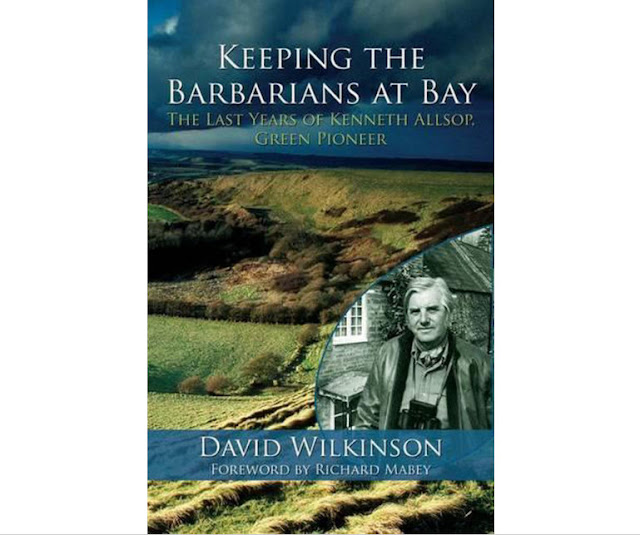First, a nice bit of good news. Almost three years ago I was fortunate enough
to get this photo...

|
| Female Cirl Bunting (foreground) and Yellowhammer, West Bexington, January 2021. |
Several weeks back I had an email from Ed Stubbs at
Birdwatch magazine, asking if they might use the image in an
upcoming article. And if you turn to page 38 of the December edition, there it
is, in an inspirational piece about winter bunting flocks. As well as
the obvious fame bestowed by such exposure, there was fortune too, and I am
fifteen quid to the good.
In an earlier edition of the same magazine (November? October?) was a
thought-provoking opinion piece by Matt Phelps, in which he bemoaned the
negative tone that pervades much of birdy Twitter. I've recycled the relevant
Birdwatch mag but my memory tells me this was the gist of it:
Matt suggested that the depressing tendency of 'older' birders to dwell on the
glory days of yore - when Tree Sparrow flocks were a driving hazard and
every suburban garden was carpeted in Turtle Doves - is
essentially a discouragement to younger folk taking up the conservation cause,
and that we should focus more on the success stories.
I cannot help wondering if Matt has underestimated the ability of youthful
enthusiasm to triumph over adversity. I am sure that most twenty-somethings
regard the doom-mongering utterances of grumpy has-beens as exactly that. And
rightly so. I mean, what do they know? Okay, so there might well have
been Redstarts and Wood Warblers bursting from every leafy glade
fifty years ago, but there were virtually no breeding Peregrines in the
whole of southern England. But look at them now! So put that in your
wrinkly old pipe and smoke it, Mr Fart.
That latter fact was brought home to me by some other recent reading
material...

|
| Cover image nicked from web, but I do have the book and have just finished reading it. |
Although the name rang a bell, I think Kenneth Allsop was just before my time.
His star rose principally in the '60s, as a journalist and TV presenter mainly
of current affairs, but his first book (Adventure Lit Their Star
- published 1949) was about Britain's first breeding
Little Ringed Plovers. Kenneth Allsop was a birder. For the last three
years of his life he resided at West Milton Mill, just down the road from
where I live, and was a vigorous environmental campaigner. Prior to reading
this book I had no idea he was largely responsible for the preservation of
Powerstock Common's oak woodland. The Forestry Commission were already in the
process of felling it for conifer planting when Kenneth Allsop and a couple of
friends intervened. The book cover features nearby Eggardon Hill, an area
which in the early '70s was being prospected for oil and gas. I find it hard
to believe that 120ft drilling rigs were blotting the landscape of the lovely
West Dorset AONB (Area of Outstanding Natural Beauty) back then, but
apparently so, and KA was instrumental in galvanising local opposition.
The book is about those final years, and how he used his various public
platforms (including the BBC and Sunday Times) to turn a spotlight on
individuals, companies and organisations wreaking - or allowing -
environmental havoc. It is also about the resistance and opposition he faced,
and about the almost inevitable emasculation of his influential voice. Kenneth
Allsop took his own life in May 1973. He was more than ten years younger than
I am now. He was not a saint, but I know two people who worked for him at that time, and both have only fond memories and kind words.
The book is both inspiring and depressing.
Plenty that KA railed against is as much an issue today as it was then, but
there have also been many environmental battles fought and won in the last
fifty years. I don't think Matt Phelps need worry too much. Clearly there are
always willing combatants, and the grumpy old moaners aren't going to change
that.
Adventure Lit Their Star!! I remember reading that on the mid-70s in the school library. An excellently written book.
ReplyDeleteThe writer of 'Keeping the Barbarians at Bay' suggests in it that KA actually discovered those first breeding LRPs, though I haven't investigated the accuracy of that. A great story if true. 😊
DeleteThe young are more than willing to fight the good fight. Increasingly so in fact.
ReplyDeleteI think you're right. Refreshingly optimistic too.
Delete